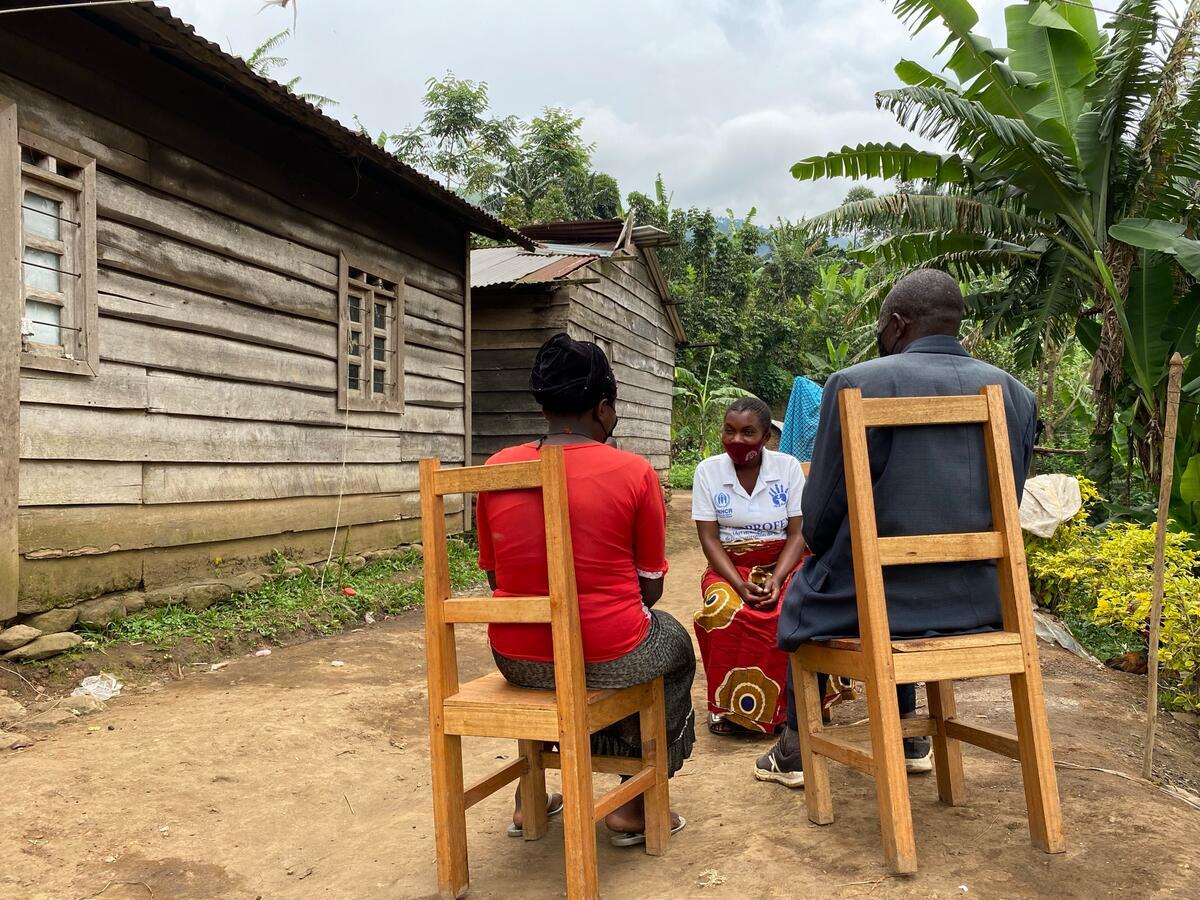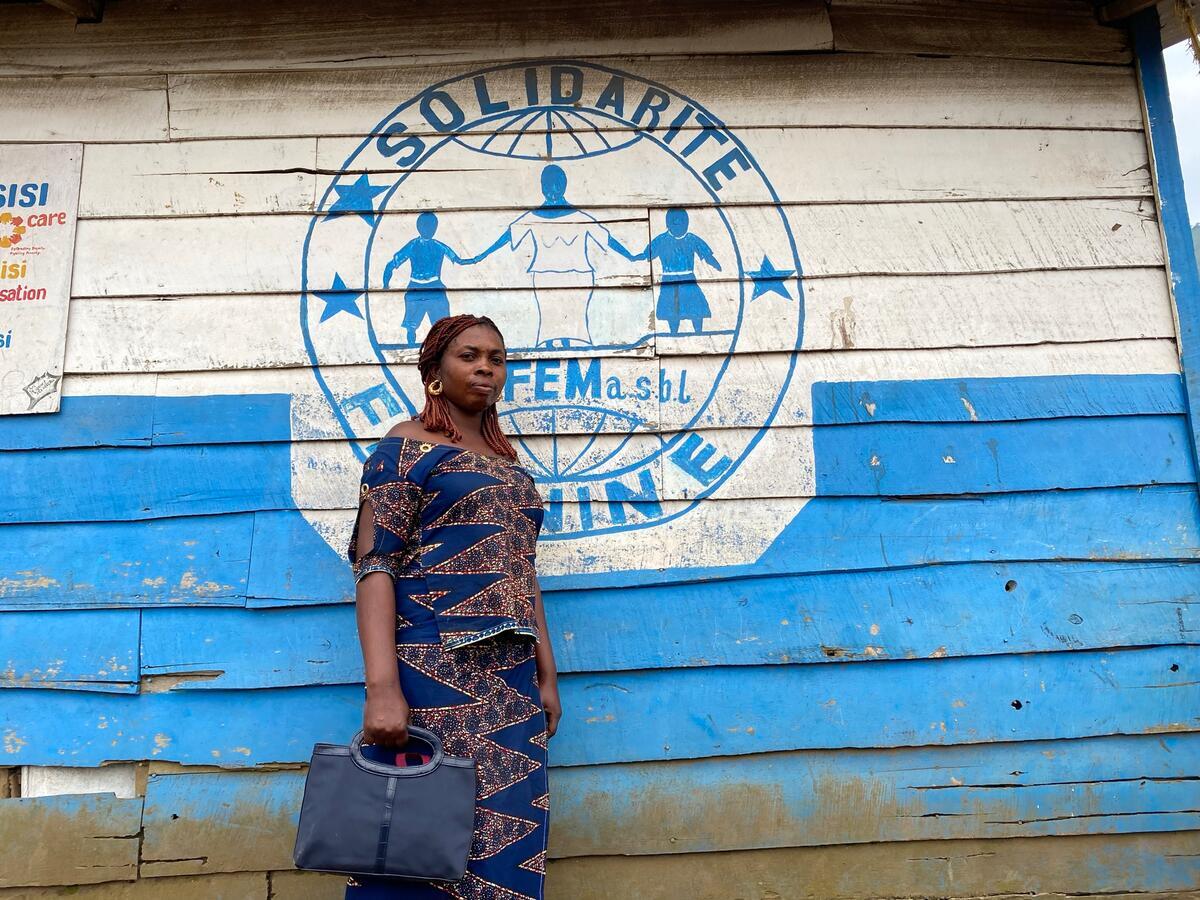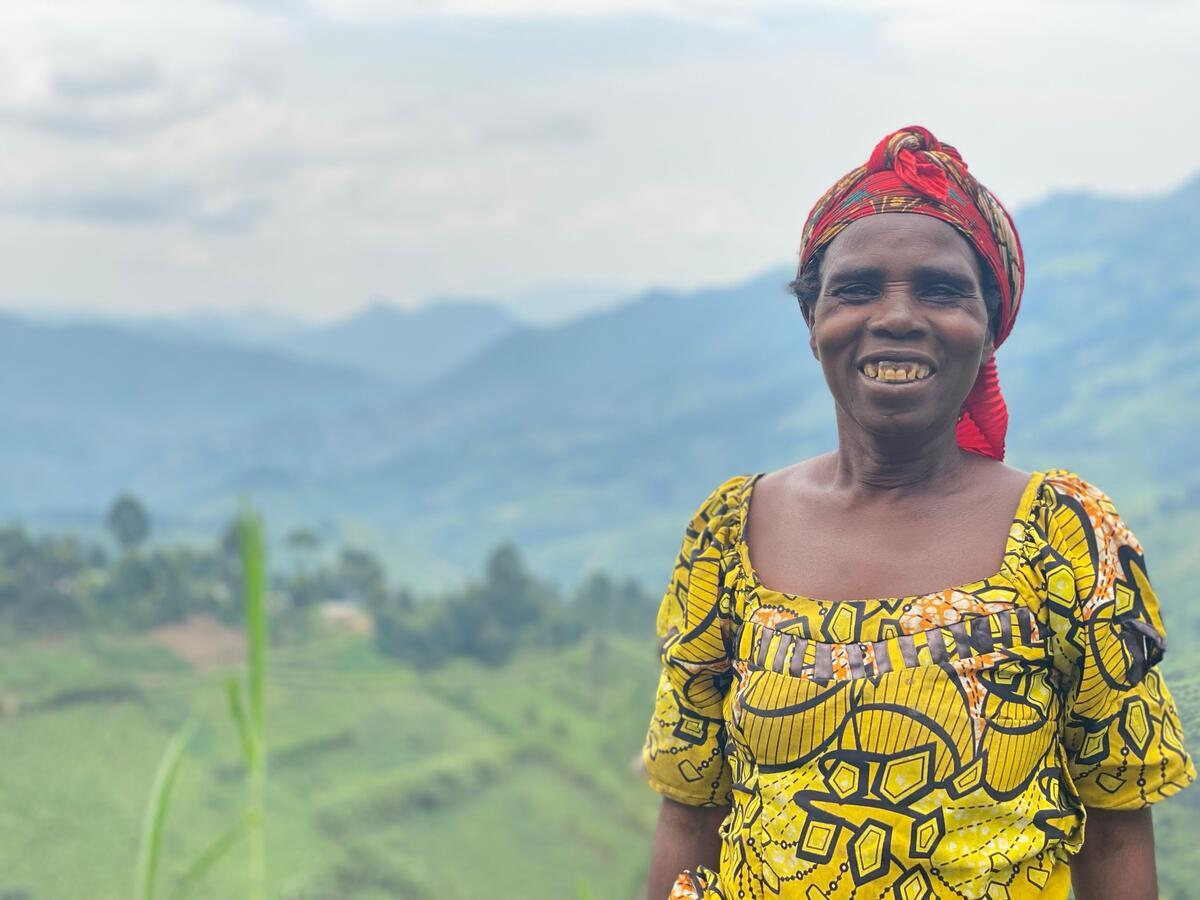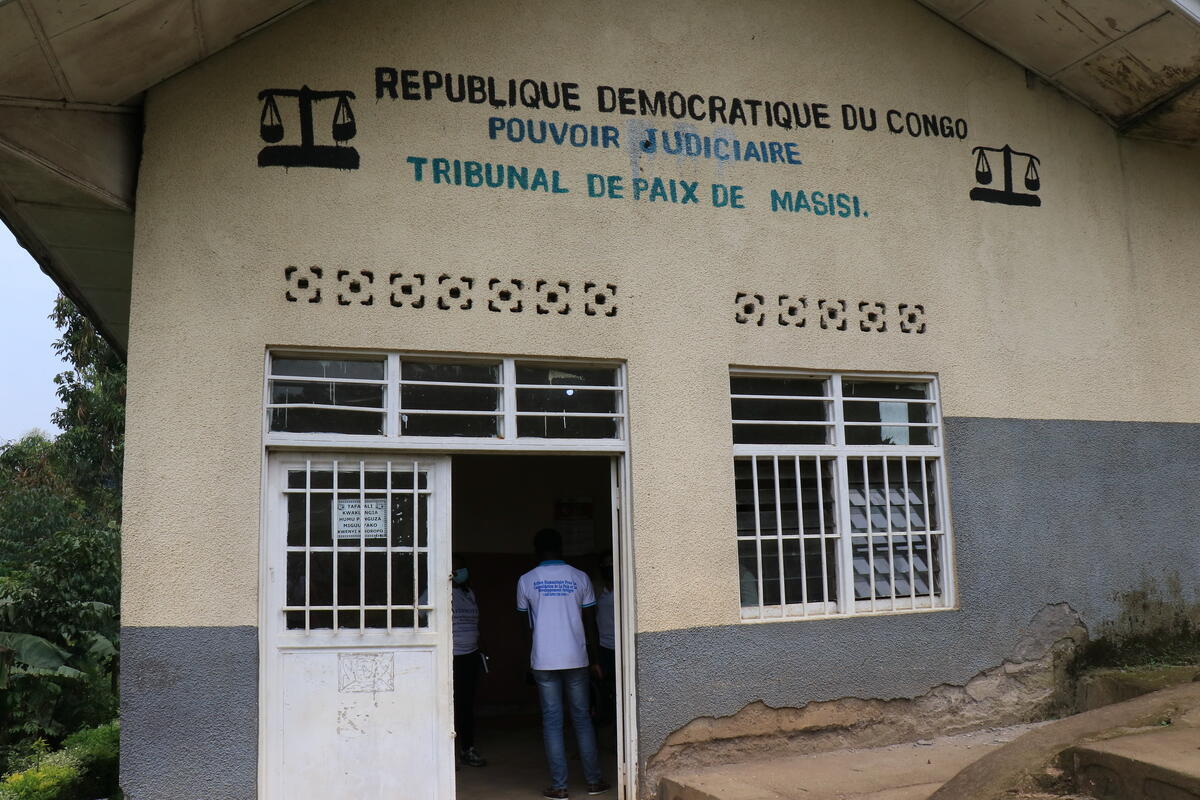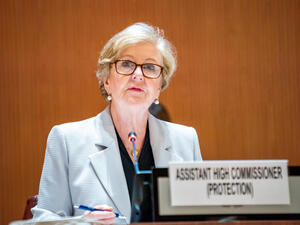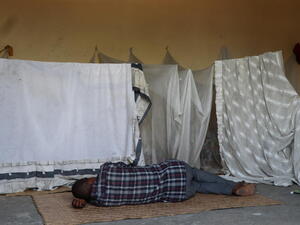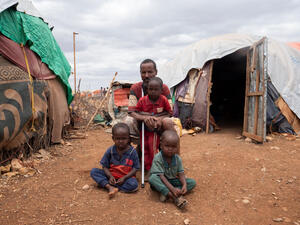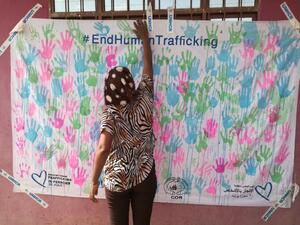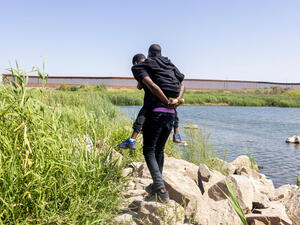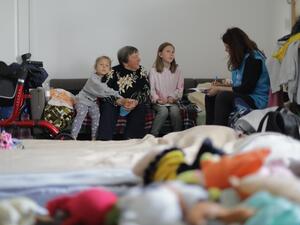Protection services a life changer for DR Congo's displaced
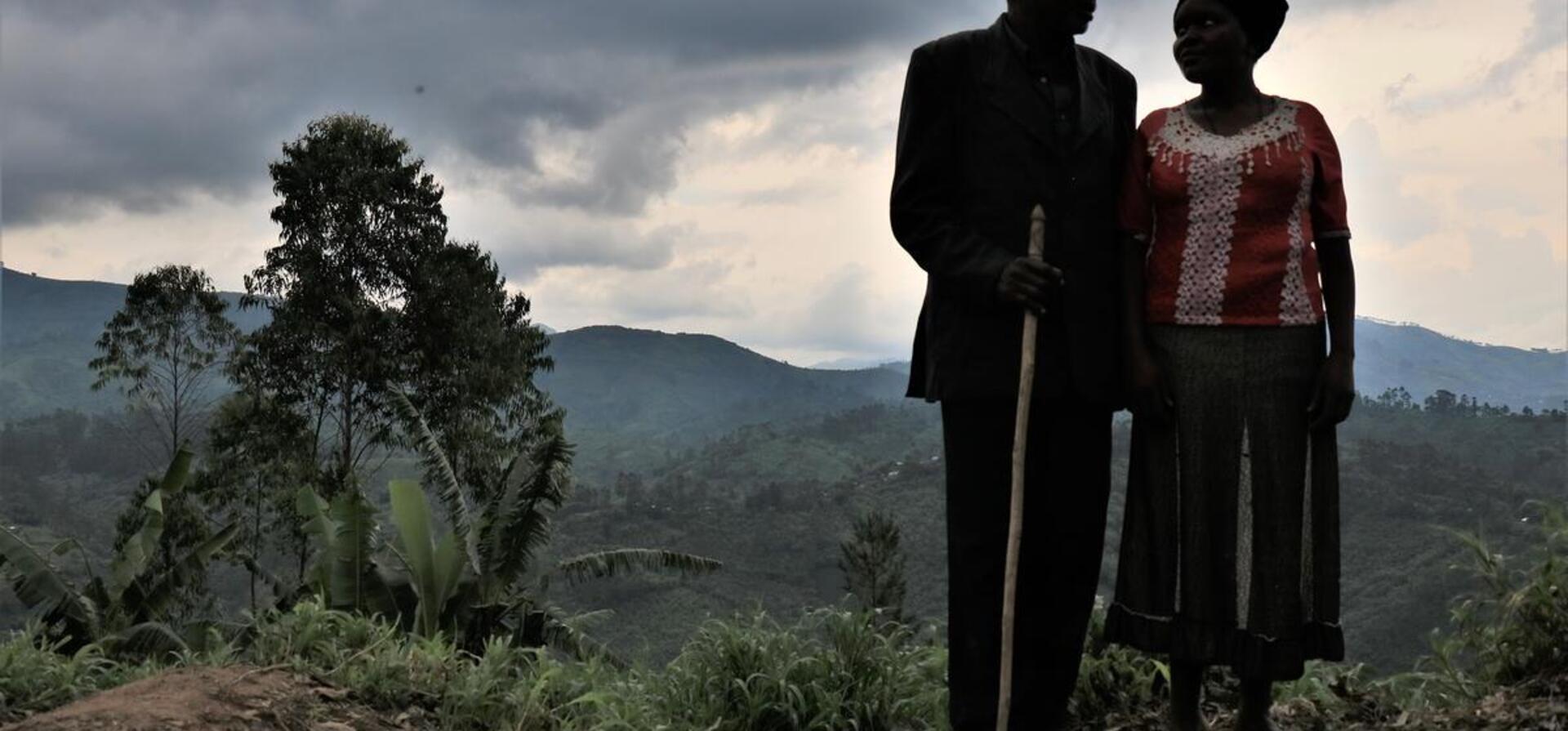
Protection services a life changer for DR Congo's displaced
Rosette* is only 15 years old but shows great courage as she recalls the day when she was attacked in plain daylight by an armed man.
“He suddenly appeared and demanded my phone. When I gave it to him, he pushed me down to the ground,” says Rosette who was taking food to her family as they worked in the fields in Masisi in eastern Democratic Republic of the Congo (DRC).
When she tried to escape, the man started beating her with a stick and injured her with a knife.
“I started to scream when he tried to force himself on me,” she adds.
People working in the nearby fields heard her cries for help and came to the rescue. They captured the man and handed him over to the authorities.
“I started to scream when he tried to force himself on me.”
“It was a very traumatic experience. Even today, I am in shock, but I am relieved that he is in detention now.”
Through local initiatives supported by UNHCR, the UN Refugee Agency, the teenager received psychological and legal support and was referred to medical care to help her work through the trauma and later, to testify in court.
Thousands of women and children like Rosette who have been forcibly displaced by the ongoing conflict in north-eastern DRC are often exposed to severe sexual violence and abuse.
To support survivors, including women, children and men, UNHCR has teamed up with local initiatives in the region to provide legal aid and psychosocial care. This year, nearly 200 women and men received legal assistance in North Kivu and over 500 women received psychosocial support through programmes designed and implemented by local partners. Survivors of GBV are also referred to appropriate medical structures.
“I am so grateful for the support we received through UNHCR’s partners. They really fought hard to get our daughter the help she needed,” sighs Rosette’s father, Ngiko.
But their situation remains far from stable. In June 2021, Rosette and her father had to flee their home together with the rest of the family. Armed groups attacked their village and took anything they could – animals, food from the kitchen, cell phones.
“The little we had is gone” exclaims Ngiko.
Neema, 35, is leading a women-led initiative in Masisi that is supported by UNHCR and helps mobilize social action especially for women who are affected by violence or abuse.
“Every day, you can witness massacres and see people forced from their homes. Women and children are particularly vulnerable,” she says during a visit to check on Rosette and her family.
“Many believe that justice is for those who have money and means.”
She adds that displaced women are often exposed to grave violations such as rape during forced displacement, and only a few find their way to justice.
“Many believe that justice is for those who have money and means, not for the most vulnerable people,” she adds.
But with trainings by UNHCR and its partners, community leaders like her have become drivers of change and human rights defenders within their communities, linking the displaced to critical legal aid and psychological support.
When she is alerted to injustices like domestic violence, her organization refers the affected women to psychosocial and legal services and works with them until they find a way forward.
As humanitarian and socio-economic needs continue to rise in the region, the partnership between UNHCR and AVSI, a non-profit organization, is empowering communities to identify local and sustainable responses, but access to justice remains a challenge for many.
Asiteri, 52, lost access to her land after her husband died of ill health and her neighbours and family-in-law started to cultivate her land. But with the help of UNHCR’s local partner, she regained her land rights. Today she and her family can cultivate the land, which provides them food like beans, cassava and corn.
“By building on local capacities and improving access to justice, we are able to protect the people’s rights better,” explains Jules Katsurana, UNHCR’s Protection Officer based in Goma, the capital of North Kivu province.
Growing up in Bunia, Jules has seen firsthand, the impact of the conflict in the region.
“I have seen killings, massacres and violence since I was young, so I understand how important it is to build on existing capacities of the communities that host the displaced,” he continues.
He adds that efforts by UNHCR and other humanitarian agencies are crucial and require more support as they help reinforce the rights of displaced people in eastern DRC by training more legal and psychosocial workers so they can continue supporting people like Rosette and Asiteri.


